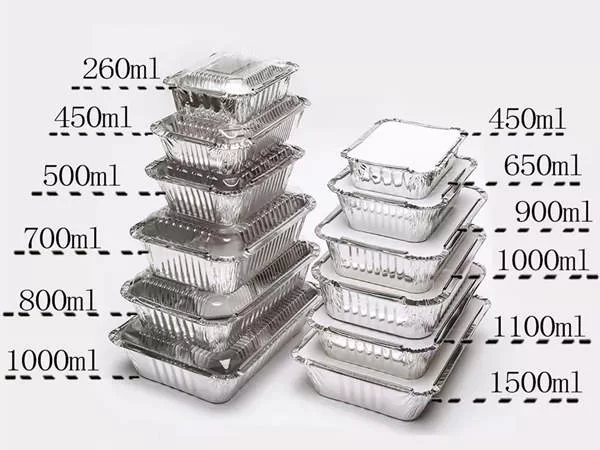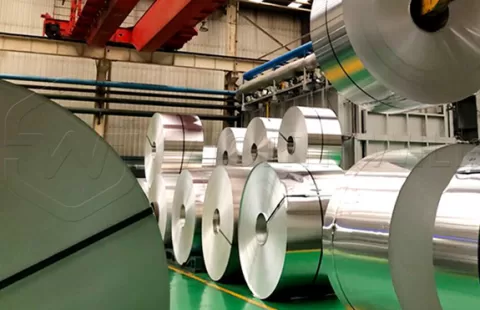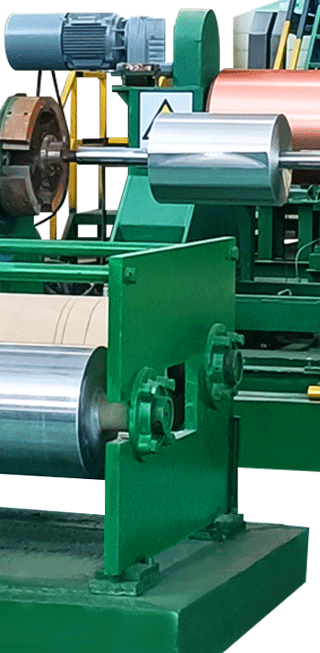
The Benefits of Aluminum Foil Alloy for Industrial Businesses
Aluminum foil alloys are essential materials in various industrial sectors, known for their versatility, durability, and cost-effectiveness. These specialized alloys combine aluminum’s inherent properties with other elements to enhance strength, corrosion resistance, and thermal conductivity. They are indispensable for many applications.

Key Benefits of Aluminum Foil Alloys
Superior Strength and Durability
Aluminum foil alloys are designed to provide enhanced strength and durability compared to pure aluminum. By alloying with elements such as magnesium, silicon, or manganese. The mechanical properties of the aluminum foil are significantly improved. This makes it suitable for demanding applications where toughness and resilience are essential.
Excellent Corrosion Resistance
Many aluminum foil alloys offer superior corrosion resistance, especially in harsh environments. This property is crucial for industries like marine, aerospace, and chemical processing, where exposure to corrosive substances can degrade materials quickly. Aluminum foil alloys form a protective oxide layer that prevents further corrosion, ensuring longevity and reliability.
High Thermal Conductivity
Aluminum is popular for its excellent thermal conductivity, and aluminum foil alloys maintain this property. This makes them ideal for applications requiring efficient heat transfer, such as heat exchangers, radiators, and HVAC systems. The ability to dissipate heat effectively helps improve energy efficiency and performance in industrial processes.
- Lightweight
Despite their enhanced strength and durability, aluminum foil alloys remain lightweight. This is particularly beneficial in industries like automotive and aerospace, where reducing weight can lead to significant fuel savings and improved performance. The lightweight nature of aluminum alloys also simplifies handling and installation. - Versatility
Aluminum foil alloys are incredibly versatile, suitable for a wide range of industrial applications. They can be easily shaped, formed, and fabricated into various configurations. It is ideal for complex designs and structures. Whether you need thin foils for packaging or thicker sheets for structural components, aluminum alloys can meet diverse requirements. - Recyclability
Aluminum foil alloys are 100% recyclable without losing their properties. This makes them an environmentally friendly choice for industrial businesses. Recycling aluminum saves energy and reduces greenhouse gas emissions compared to producing new aluminum from raw materials. Using recyclable materials supports sustainability efforts and can enhance a company’s environmental credentials. - Cost-Effectiveness
While the initial cost of aluminum foil alloys may be higher than some other materials, their long-term benefits often result in cost savings. The durability and corrosion resistance reduce maintenance and replacement costs. Additionally, the lightweight nature of aluminum can lead to savings in transportation and installation expenses. - Aesthetic Appeal
Aluminum foil alloys have a sleek, modern appearance that can enhance the visual appeal of products and structures. They can be anodized, painted, or coated to achieve various finishes and colors, making them suitable for applications where aesthetics matter.
Common Applications of Aluminum Foil Alloys
- Packaging
Aluminum foil alloys are wide uses in the packaging industry for food, pharmaceuticals, and consumer goods. They provide a barrier against moisture, light, and oxygen, preserving product freshness and extending shelf life. - Automotive and Aerospace
In the automotive and aerospace industries. Aluminum foil alloys are uses for components like heat shields, insulation, and structural parts. Their lightweight and high-strength properties help improve fuel efficiency and performance. - Construction
Aluminum foil alloys are in construction for roofing, insulation, and cladding. They offer excellent thermal insulation and durability, making buildings more energy-efficient and resilient. - Electronics
In electronics, aluminum foil alloys are used for heat sinks, capacitors, and shielding applications. Their high thermal conductivity and lightweight nature make them ideal for managing heat and protecting sensitive components. - Industrial Machinery
Aluminum foil alloys are employ in manufacturing equipment, machinery, and tools due to their strength, corrosion resistance, and ease of fabrication. They contribute to the longevity and efficiency of industrial operations.
Choosing the Right Aluminum Foil Alloy
When selecting an aluminum foil alloy for your industrial business, consider the following factors:
Application Requirements: Determine the specific properties needed, such as strength, corrosion resistance, or thermal conductivity.
Environment: Consider the environmental conditions the material will be exposed to, including temperature, humidity, and corrosive substances.
Customization: Look for suppliers who offer customization options to meet your precise needs, including alloy composition, thickness, and surface finish.
Supplier Reputation: Choose reputable suppliers with a track record of providing high-quality aluminum foil alloys.
Conclusion
Aluminum foil alloys offer numerous benefits for industrial businesses, from enhanced strength and corrosion resistance to lightweight and versatile applications. By understanding these advantages and selecting the right alloy for your needs, you can improve the performance, efficiency, and sustainability of your operations. Investing in high-quality aluminum foil alloys is a strategic decision that can lead to long-term cost savings and increased reliability in various industrial application.
Leave a Comment
You must be logged in to post a comment.



